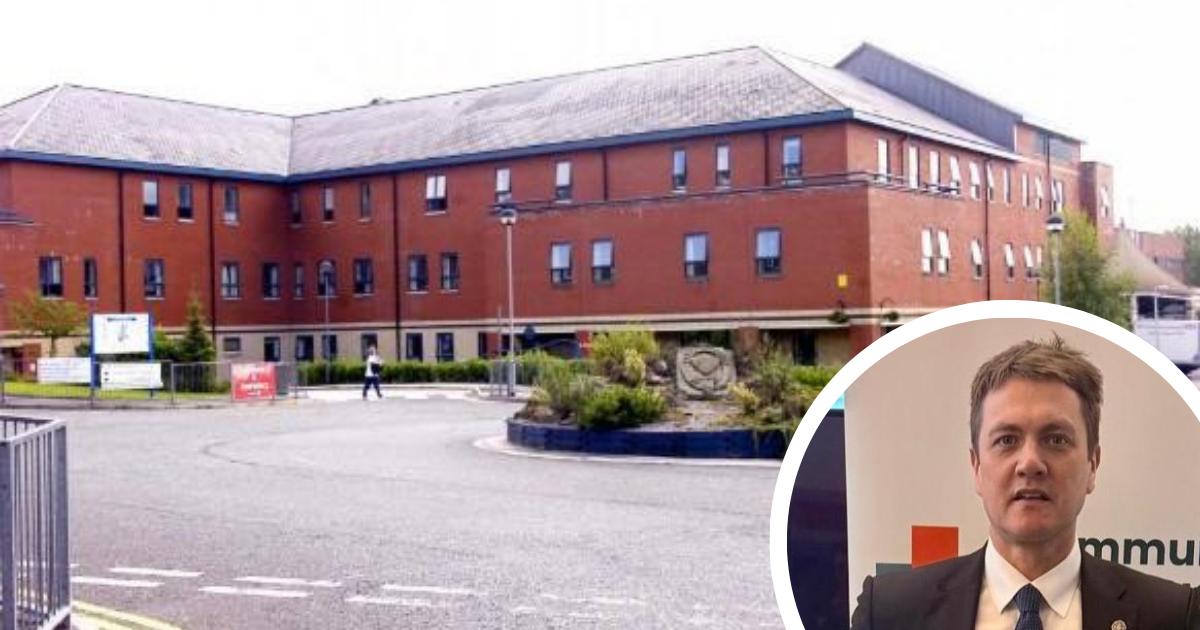Pennine Care NHS Foundation Trust provides mental health services across Greater Manchester, including units at Fairfield General Hospital, Birch Hill Hospital and Royal Oldham Hospital.
It was assessed by the Quality Care Commission (CQC) in November last year in response to “concerning information” received about several mental health wards from complaints, whistleblowing concerns and notifications from the trust.
The assessment included onsite inspections of all nine of the trust’s wards.
The report, which was published in May, found five breaches of regulations and highlighted concerns around staffing, patient care and training.
Inspectors found that patients did not always receive “sufficient person-centred support to make their own decisions”.
The report said that patients who were unable to clearly communicate their needs verbally “did not have communication care plans or any planned individualised support to support them in making and communicating decisions about their care”.
For patients who might have impaired mental capacity, staff “did not always assess and record capacity to consent appropriately”.
It added that relatives and carers “mostly gave positive feedback” but that some reported that they were “only allowed an hour with their relatives”.
Inspectors found that it was “not possible” to identify the proportion of staff on each ward who had completed Mental Health Act awareness training or how up to date this was due to it not being compulsory.
The service “did not have effective arrangements to monitor adherence to the Mental Capacity Act” at the time of the visit and the trust was not carrying out regular audits to ensure that the Mental Health Act was being applied correctly.
The report found that although the wards were “usually staffed to safe levels”, there was “high use” of temporary staff to cover vacancies, staff sickness and enhanced clinical need on the wards.
It also shared that the systems for induction and training of temporary staff “did not always ensure that staff were familiar with the wards and the needs of the patients they were caring for”.
READ NEXT: Eight Bury schools set to receive share of £54m funding for essential work
READ NEXT: Greater Manchester to get £2.5bn transport boost- including new Bury tram stop
While “most” patients told inspectors that the food was “good”, some said that “good quality food which met their cultural needs was not always available” and that they did not have access to spiritual support on the ward when they “would have liked this”.
The CQC has instructed the trust to provide an action plan and to make improvements in response to the concerns found.
Bury North MP James Frith deemed the findings “unacceptable” and has written to the trust’s chief executive demanding “urgent answers and action” along with an immediate meeting.
The Labour MP said: “The CQC’s findings are deeply troubling.
“Older people in Bury deserve far better than wards that fall short on safety, staffing, and care.
“Since sharing my letter, I’ve been contacted by families of patients who’ve come forward with their own experiences – adding weight to the serious concerns raised.
“I’ve written to the trust demanding urgent improvements to ensure dignity, safety, and proper treatment for some of our most vulnerable residents.”
The trust also provides mental health services for military veterans across Greater Manchester.
The overall rating of the trust’s wards for older people with mental health needs has dropped from its former “good” status to “requires improvement”.
READ NEXT: Up to 120 taxi drivers in Bury face ‘immediate suspension’
READ NEXT: Work to start on replacement for bridge destroyed a decade ago
Tim McDougall, executive director of quality, nursing and healthcare professionals at Pennine Care NHS, said: “We accept the findings of the CQC’s assessment of our older adult mental health wards and are fully committed to addressing the areas identified for improvement.
“Our focus is on delivering high-quality, person-centred care for all our patients.
“While the inspection highlighted challenges, it also recognised positive practice – the compassionate care of staff, clean and safe ward environments, and our culture of safety and openness.
“We are already delivering a robust improvement plan focused on strengthening clinical standards, patient engagement, staff training and ward leadership.
“We’re also improving compliance with mental health law, access to therapeutic activities and work to further embed a culture of kindness, respect and safety.
“Importantly, we are working in partnership with patients, carers and staff to ensure lasting change.
“We’re proud our efforts are reflected in our latest NHS Staff Survey results which showed improvements across all seven themes, scores above the national average, and recognition as the best mental health and learning disability trust to work for in the North.”
